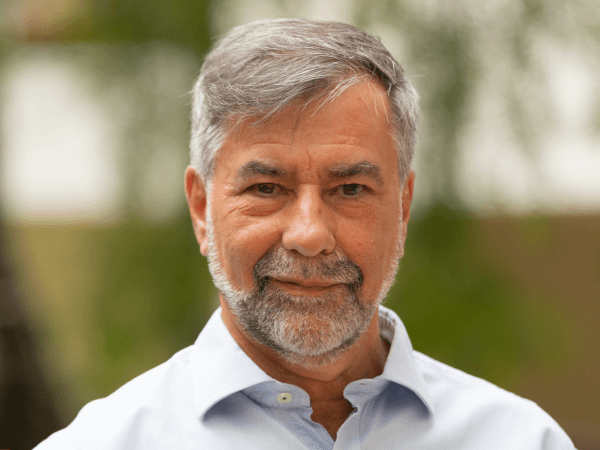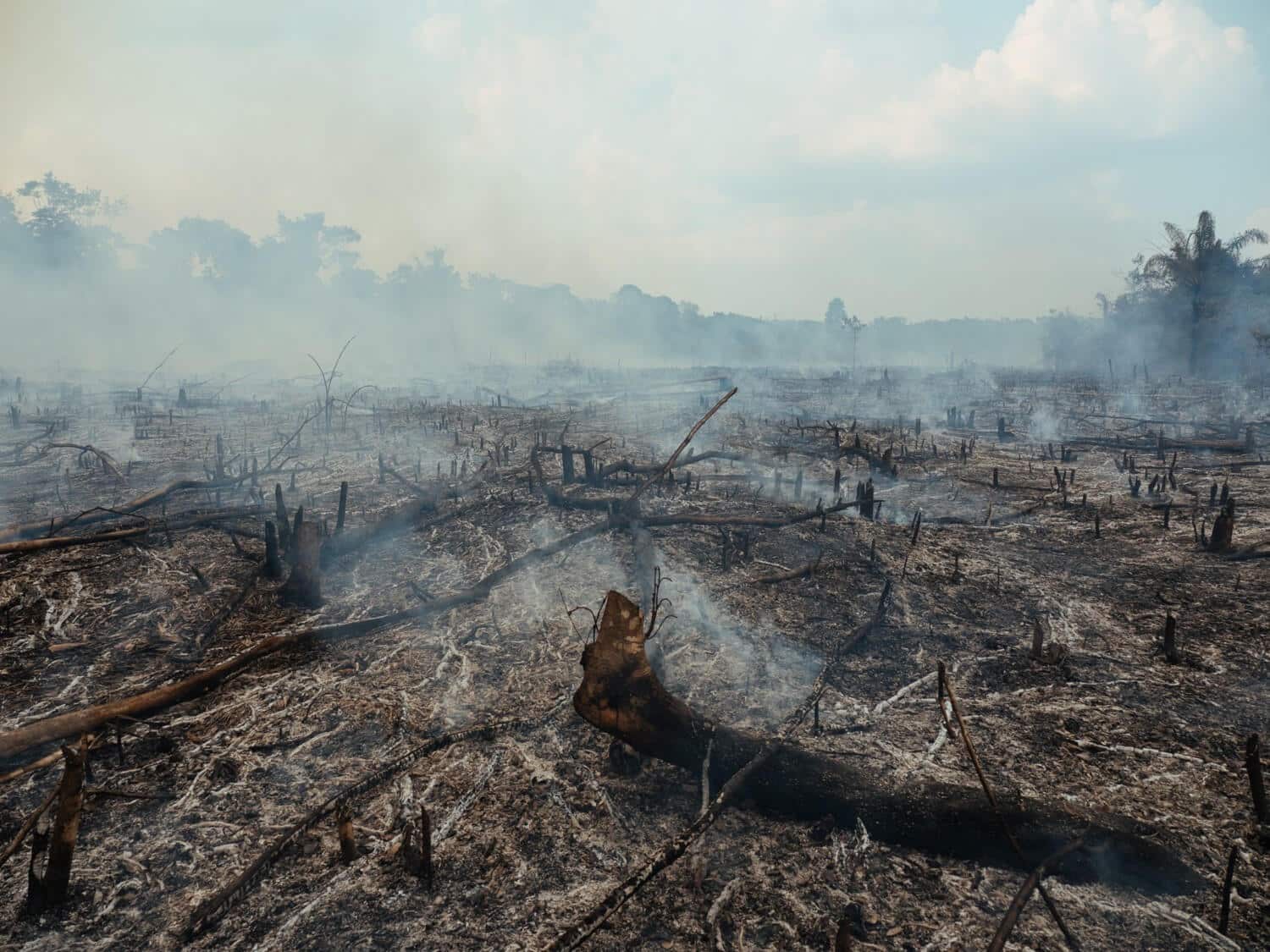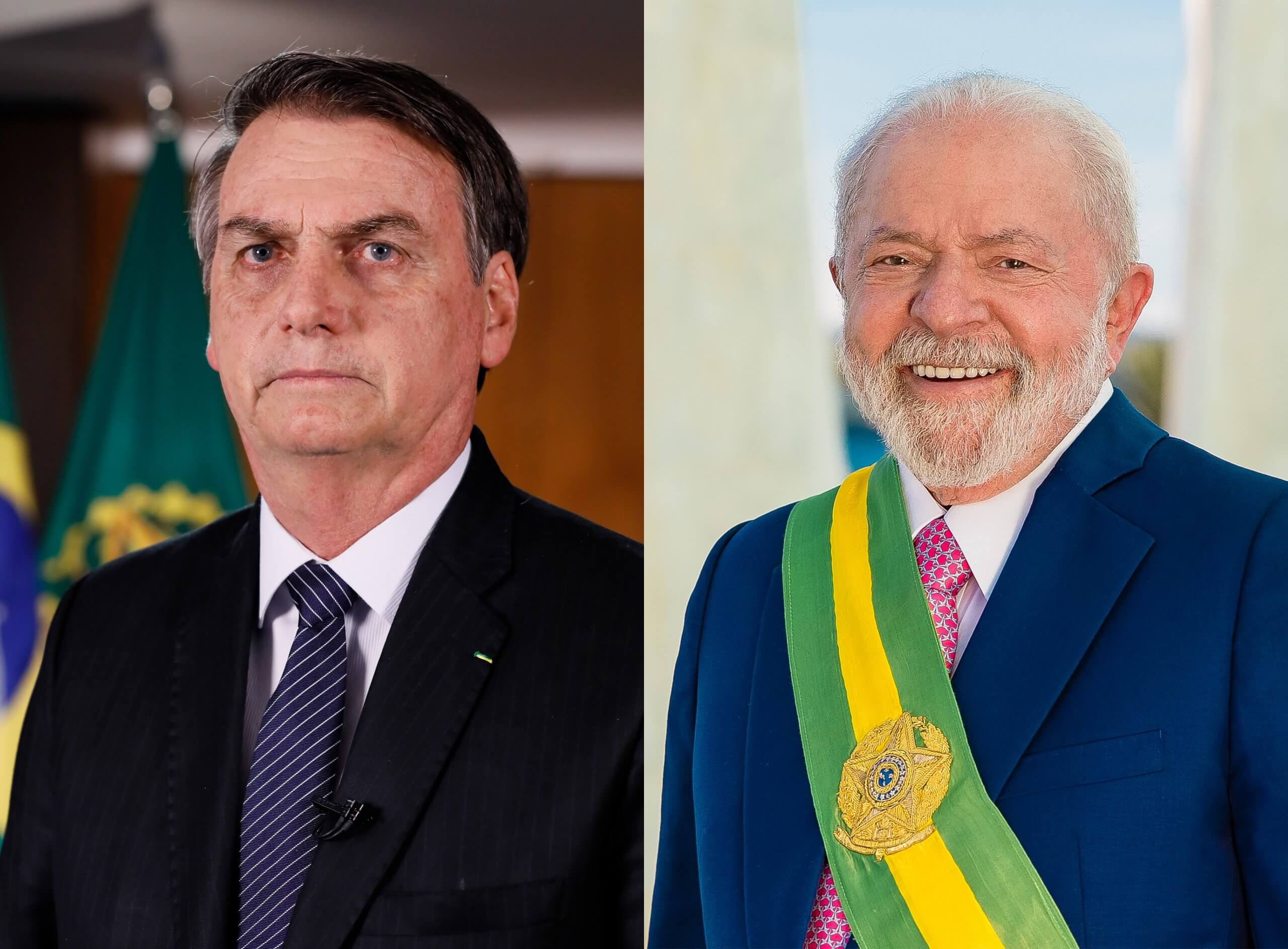A transformation is currently taking place in the Amazon forest, and behind it stands a researcher: Prof. Paulo Artaxo, one of the most important scientists in the world, put together the plan that is currently being implemented in Brazil to restore and glorify the injured rain forest. On the occasion of his visit to Israel, he tells how change is being made, explains why the deforestation carried out by the Bolsonaro government was against the constitution - and in fact unnecessary, and delivers a message as clear as the sun in the forest: "It's not too late yet"
Racheli Vox - Angle - Science and Environment News Agency

There are very few people who truly and wholeheartedly change the world - and Prof. Paulo Artaxo is undoubtedly one of them. The Brazilian Artaxo, who studies the Amazon forest, is the scientist behind the significant change that took place in his country's environmental policy with the recent change of government, which transformed the country from one that encourages the intensive cutting down of the world's green lungs - to one that preserves the rainforest under its protection, is well aware of its importance and is committed to its restoration The great damage has already been done.
Artaxo, born in 1954, is not just another scientist. His main position is a professor in the Department of Applied Physics at the Institute of Physics at the University of Sao Paulo in Brazil, and his number of scientific publications is close to 500, with his various studies presented over 1,000 times at scientific conferences. According to the research search engine Google Scholar, his articles have been cited inNearly 63 thousand articles. In fact, it is repeatedly included in the top percentile of The most cited scientists in the world – and for years he was the only Brazilian scientist on this list. Over the years, he has won many awards. But his work and influence certainly do not end in the laboratory.
I am talking to him in a cafe in Jerusalem, as part of his visit to Israel for a research conference in Eilat. His wife and 6-year-old daughter join him, in a break from professional events, between a visit to the Western Wall and a weekend trip to the Dead Sea. And it seems that within Artaxo's calm and smiling visage, two fit together well: an experienced, influential and knowledgeable world-renowned scientist - and a young, determined and hopeful social-environmental activist, who saw with his own eyes that real change can happen.

"It was not easy during the previous administration"
As mentioned, in the last year there has been a change in Brazil's policy towards the rainforest in its territory. "During the previous government, we had to find ways that would allow Brazilian society to survive the conduct of the government," says Artaxo. "It was not easy". Jair Bolsonaro, who ruled the country between 2022-2019, actively promoted Extensive deforestation of the Amazon forest. He abolished most of the legal and practical protections for the forest, worked for extensive exploitation of the forest's minerals by his government and various capitalists, delayed the treatment of the huge fires that broke out in it in August 2019 and ignored the claims of many indigenous communities who relied on the natural forest as a source of livelihood. During his reign, the forest deteriorated into the absurd state it is in emits more carbon dioxide than it absorbs, and about 10,000 different species of unique animals that live there are currently in danger. In those days, Artaxo often spoke out against the government's decisions, partly within the framework of the national scientific organizations he takes part in leading.
However, on January 1, 2023, everything changed. Luiz Incio da Silva, known as Lula, came to power in the country instead of Bolsonaro, after an election campaign in which he unequivocally stated his commitment to protect and restore the Amazon - a promise that he started to exist in the field Immediately upon taking office. the scientific and environmental part of the platform of da Silva's party - wrote Artaxo.
Artexo's involvement in policy change did not stop at the election, and these days he works on behalf of the Brazilian government to make its environmental vision a reality. "I sit on several committees on behalf of the government, such as The Amazon Foundation - a government body that is responsible for managing the international donations intended for the preservation of the tropical forest," he says. "This is a fund that also existed during the time of the previous administration, and it even had 2 billion dollars in the bank at the time to finance the protection of the forest - but the previous government froze the money, and did not allow its use. This situation has changed dramatically, and now we are starting to use the money in the best way, for the sake of the forest."
Crimes against the Brazilian Constitution
According to Artaxo, no less than 20 percent of the Amazon is already created - but it is important for him to emphasize that despite the great damage caused to the rainforest, he is definitely optimistic about the possibility restore it. "It's not too late yet," he says, "never too late." We need to correct the mistakes of the previous government, and implement social, economic and environmental measures that will put Brazil back on a good track. This is our commitment."
The plan for the restoration of the Amazon includes two parts: the cessation of extensive deforestation and the reforestation of as significant a part of the destroyed areas as possible. "Brazil is committed to stopping deforestation by 2028, and reaching a state of zero deforestation," says Artaxo. "These days we are implementing long-term plans for reforestation, which are expected to take 10-5 years."
Such ongoing programs require, of course, that the government does not cancel them before their end - which could be difficult if the government changes again. "We are working so that such an exchange does not happen," says Artaxo. "We implement social policy measures, and the general public can understand that they do not only express the will of a certain government, right-wing or left-wing - but the ambitions of the state of Brazil."
Despite the optimism, Artaxo admits that it will not be possible to reforest all the Amazon areas that have been cut down, because some of them have been converted to soybean fields and pastures. "However, most of these lands were simply abandoned," he says. "Using the territories requires a lot of money, and the companies that created them did not have enough money for that." Thus, in effect, huge areas of rainforest were created in vain.
Beyond that, according to Artaxo, all destruction of the forest is unjustified. A common perception is that the Amazon is being destroyed to allow farmers to grow grain in their territory for their livelihood and survival. However, he clarifies that this is a completely wrong assumption. "The truth is that Brazil has so much land that we don't need to cut down even one tree to improve the country's agricultural production," he says. "We have all the necessary conditions to maintain the forest as it is now, and at the same time increase the amount of agricultural yield and provide land for all farmers."
So why, then, is the Amazon created on such a large scale? "This is an illegal invasion of public and indigenous lands," Artaxo clarifies. "In fact, these are crimes against the Brazilian constitution, which constitute an attempt to take land that belongs to the state into private hands."
The Amazon - a turning point
The list of institutions in which Artaxo researched during his academic career is extensive, and includes, among others, Harvard University and NASA. However, the physicist Artaxo did not start his career as a researcher of forests - but as a researcher of aerosols: tiny particles of natural or human origin that float in the air and play a significant role in the formation of clouds. Through the study of aerosols, Artaxo discovered the Amazon: among other things, aerosols affect the rainfall in the tropical forest - and are affected by the fires that rage there.

In Artaxo's laboratory, various research projects are currently being carried out that examine the situation in the Amazon. One of the most prominent of these is a project that calculates the amounts of greenhouse gases that are emitted from the forest due to its destruction and degeneration, and the amounts of greenhouse gases that the forest can absorb from the atmosphere. "Until a few years ago, the forest absorbed carbon at a very high rate," explains Artaxo. "However, due to the climate crisis, the temperature is increasing - in some areas of the Amazon even by 2.5-2.4 degrees Celsius, and the amount of precipitation is decreasing - in some areas even by 20-15 percent. The combination of the two makes the forest less immune to extreme climatic events - which causes it to lose carbon for the benefit of the atmosphere." According to him, those who visit the parts of the forest that suffer from degeneration today will see smaller trees than before. "If such a situation continues for a long time, the forest will not be able to receive the ecological conditions it needs to survive."
"The Amazon forest is one of the turning points of the climate system," Artaxo clarifies. "If the global temperature is allowed to rise by 4-3.5 degrees Celsius, for example - the conditions that will prevail will not allow the tropical forests of the world to maintain their metabolism, for the first time in 200 million years. This situation will create a positive feedback loop in the global climate: billions of tons of carbon will be released into the atmosphere, further exacerbating the greenhouse effect." According to him, 120 billion tons of carbon are currently fixed in the entire Amazon, which were absorbed over the generations by the trees and vegetation and stored in them - an amount of carbon equal to that emitted during all the burning of fossil fuels that takes place in the entire world for an entire decade. "That's a huge amount of carbon, and it has the potential to make global warming significantly worse than even the most pessimistic forecasts predict."
Science is an element of society
Artaxo knows very well that in order to prevent the possible horror scenarios and to improve the condition of our planet, it is not enough to carry out scientific studies - and it is necessary to act in front of the decision makers. Thus, he is one of the members of the IPCC - the intergovernmental panel on climate change, established by the United Nations in order to quantify the effects of the climate crisis and present the risks arising from it (a body that won the Nobel Peace Prize in 2007) - and thatHis reports, of which Artaxo is one of the authors, gain a wide resonance. He is also a member of many other national and international bodies, including the World Academy of Sciences (TWAS). This view of his was also expressed during his visit to Israel, when he met with colleagues and program colleagues "interface", in the framework of which doctoral graduates are integrated as advisors to senior officials in various government ministries, and assist in decision-making and the design of environmental policy in Israel.

"Science alone will not be able to solve the situation at the point where we are today", he says. "There is a need for public policies in various fields - which will be based on science, and which can lead our society to build new and sustainable ways of life. Because if we don't do this - life on our planet will be very difficult." Beyond that, according to him, science is not something external to society, which belongs to scientists only - but a tool to deal with issues that are at its core. "Science is an element of society, and it is always integrated with society as a whole," he says.
According to Artaxo, however, governments respond much more to economic interest than to science. "Companies and governments have a very short-term perspective, of a few years ahead," he says. "This situation must change, we must build plans for 20, 30 and 50 years ahead - otherwise, we will never solve our main problems."
In addition, Artaxo sees a significant connection between improving the condition of the environment and reducing social gaps and benefiting the condition of the weaker sections - values of which are very important to him. "A better and healthier environment promotes a better life, including for the poor - because in such a situation people have access to clean water, they can enjoy better food that contains less pesticides, and fewer extreme climate events occur - which hurt the poor the most," he says. "No matter how you look at it, these two issues should be seen as integrated into each other."
In the end, Artaxo believes that in order for human society to continue to function - change is necessary. "Humanity is currently at a very crucial point in time, and we must find ways to enable our society to develop in a sustainable manner," he says. The measures that Artaxo calls for to fight the climate crisis are not surprising. "Developed countries must stop burning fossil fuels, and they must change their way of life to preserve the global environment. Otherwise, all tropical forests will not be able to survive - not just the Amazon."
Unrealized Israeli potential
Artaxo has been carrying out fruitful collaborations with researchers from the Hebrew University and the Weizmann Institute for years, and this is his second visit to Israel. Dr. Raphael Stern, formerly a master's student under Artaxo's guidance and currently an "interface" fellow at the Ministry of Agriculture and Rural Development, came to him through one of these connections. "I came to Israel from Brazil after my bachelor's degree, and I started working with Prof. Dan Yakir from the Weizmann Institute," he says. "When I told him that I wanted to stay for a master's degree, he told me - don't you dare! You are Brazilian, you have a great opportunity in the Amazon. Have you heard of Paulo Artaxo?” According to him, the essay Shikir (who later became his PhD supervisor) created had a significant impact on his path. "Through Paulo, I discovered in Brazil a new world of research at a very high level. This was a turning point in my life. Paolo was a model for a researcher, a professional, and a sensitive, smart and intelligent human being."
Artaxo's connections with Israel and its scientists also enlightened his eyes to the environmental difficulties that the country is facing - and to its strengths. "Israel has the potential to produce a huge amount of solar energy, which can be much cheaper than burning fossil fuels," he says. "Israel is a country that is very well positioned in terms of producing energies that will allow the burning of fossil fuels to be stopped - and the Israeli solar energy sector is not expanding as much as it could."
According to him, a factor that is a significant advantage for Israel and its residents is the scientists who work there. "The Israeli scientific community is very strong," he says. "The Israeli National Academy of Sciences is very active, and there are many scientific societies here. This community can certainly help Israel solve some of its main problems - such as the climate crisis, and also some of the social difficulties that are evident in it."
Beyond that, in Artaxo's eyes, there is great potential in our relations with our neighbors, despite the complexity that characterizes the area. "I see the Middle East as a tremendous opportunity for countries to work better together, in areas such as development and science - for example, in finding joint ways to solve the water problems that are very difficult for most countries in the region and will only get worse due to the climate crisis. There is an opportunity here to find ways to coexist in peace in this significant area of our world."
It's not easy here, I remind him towards the end. "I know, but it's not easy anywhere," he replies. "Even in Latin America it is not easy. But you can always find a way."
